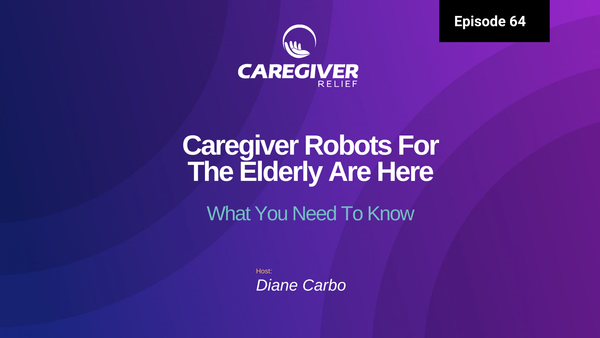Can Lewy Body Dementia be Reversed?

Introduction to Lewy Body Dementia (LBD)
Lewy Body Dementia (LBD) is a progressive neurological disorder that affects movement, thinking, and behavior. It is the second most-common form of dementia, accounting for up to 10 percent of all dementia cases.
Understanding LBD is crucial for those living with the condition and for their caregivers. Knowing what to expect, how to manage the condition, and where to find support can help reduce feelings of uncertainty and provide access to helpful resources.
Understanding the Symptoms of Lewy Body Dementia
Lewy Body Dementia (LBD) is a progressive condition that affects the brain, leading to both physical and cognitive impairments. It is important for both individuals and family caregivers to be aware of the common symptoms in order to take steps to treat or manage the condition.
Common Physical Symptoms
Physical symptoms associated with LBD can be wide-ranging and often include:
- Tremors
- Stiffness or rigidity of the muscles
- Difficulty walking or maintaining balance
- Bladder and bowel dysfunction
- Fatigue
- Weight loss
- Decreased appetite
Cognitive Symptoms
Cognitive impairments often associated with LBD include:
- Memory loss
- Confusion or difficulty concentrating
- Difficulty making decisions
- Trouble finding words
- Lack of focus
- Hallucinations
Behavioral Symptoms
Behavioral symptoms of LBD can vary and may include:
- Depression
- Anxiety
- Agitation
- Wandering
- Aggression or acting out
- Apathy
It is important to note that the severity and combination of symptoms will vary from person to person. If you notice any of these signs in yourself or a loved one, it is essential to seek medical help for an accurate diagnosis.
Diagnosing and Treating Lewy Body Dementia
If you or a loved one is exhibiting symptoms of Lewy Body Dementia, it is important to get an accurate diagnosis. Diagnosis is made by a physician, typically a neurologist, through medical history, physical and neurological exams, lab tests, and brain scans. It is important to get an accurate diagnosis to ensure that other conditions with similar symptoms are not overlooked.
Once LBD has been diagnosed, there is no known cure for the condition. Treatment focuses on managing the symptoms associated with the disease, which can include medications, lifestyle changes, therapy, and safety measures. Common treatments for LBD focus on improving cognition, controlling aggressive behavior, treating depression, managing movement disorders, and helping the individual maintain independence as long as possible.
Common medicines used to treat LBD include acetylcholinesterase inhibitors, dopamine agonists, anticholinergics, and antipsychotics. Lifestyle modifications can also be beneficial in managing the condition. This may include stress reduction techniques, exercise, a healthy diet, and social activities.
Therapy can also be helpful in managing LBD. Speech-language therapy can help individuals maintain their speech and language skills. Occupational therapy can help them with daily tasks and activities, such as getting dressed, making meals, and taking medications. Finally, physical therapy can help them remain as physically active as possible.
Living with Lewy Body Dementia
Living with Lewy Body Dementia (LBD) requires careful management, both for those living with the condition and their caretakers. Diet, exercise, medication, and lifestyle changes can all play a role in helping to manage symptoms.
It is important to ensure that individuals with LBD maintain a balanced diet that is tailored to their individual needs. Foods high in sugar, carbohydrates, and salt may worsen symptoms and should be avoided. Fresh fruits and vegetables, lean meats, and complex carbohydrates are recommended. Eating healthy meals and snacks throughout the day can help to improve concentration and energy levels.
Regular exercise is also recommended as part of managing LBD. Exercise can help to reduce stress and anxiety, maintain mobility, and increase overall strength and energy. However, it is important to start off slowly and build up intensity and duration gradually to avoid over-exertion.
In some cases, it may be necessary to take medications prescribed by a doctor to help manage symptoms. It is essential to closely monitor medications for any unwanted side effects. Finally, some lifestyle changes may be recommended such as limiting stress, getting plenty of rest, and creating a calming environment at home.
Finding a supportive network is an important part of managing Lewy body dementia (LBD). A support network can provide invaluable help and comfort for individuals living with LBD as well as their family caregivers. Through connecting with others in a similar situation, individuals can gain insight, share experiences, and find comfort in knowing they are not alone.
For individuals living with LBD, support networks provide a safe place to seek understanding and advice. Through engaging with other people who understand, individuals can often feel encouraged to strive for their best quality of life. Online forums and social media groups offer a great opportunity to make connections while sharing information and experiences. There may also be local support organizations that offer face-to-face meetings and resources.
Also, it is important for family caregivers to establish a support network. Caregiving for a loved one can be emotionally and physically challenging, so having access to resources and an understanding community can be a great source of strength and hope. There are often support groups specifically for family members that provide counseling as well as practical tips and strategies for managing LBD. Online and local support networks are also available.
The support network can also extend beyond family and friends. Health care professionals, such as nurses and social workers, can provide helpful advice and emotional support. Additionally, LBD patients and caregivers should consider connecting with local advocacy organizations, such as the Lewy Body Dementia Association, to stay informed about current research and treatments.
Overall, finding a supportive network is an important component of managing LBD. It can help both individuals and family caregivers in understanding the condition and making informed decisions. By connecting with others, individuals and families can gain valuable insight and develop lifelong relationships.
Caregiving for a Loved One
Caring for someone with Lewy Body Dementia can be mentally, physically, and emotionally taxing for both patients and their loved ones. Providing ongoing care and support to a person with LBD requires a great deal of patience, understanding, and dedication.
The best way to ensure the highest quality of care is to have an individualised plan that caters to your loved one's needs and aligns with their preferences. This usually involves staying in close contact with doctors and healthcare providers; taking part in activities that are beneficial to the patient and can help promote a sense of self-worth; and learning how to recognize and respond to changes in behaviour.
Family caregivers should also make sure to look after their own wellbeing. It can be easy to become depleted and overwhelmed when providing care for an extended period of time. Caregivers should find ways to manage stress, take breaks, eat and sleep properly, and seek out support from other family members or professionals.
There are a variety of resources available to those navigating the experience of caring for someone with LBD. Support groups, personal coaching, counseling, respite care, and educational material are all valuable resources that can provide information and insight into the condition and offer practical advice on how to better respond to it.
The Role of Research & Clinical Trials
Clinical trials are researching the potential causes and treatments of Lewy Body Dementia (LBD). These trials are designed to test how effective certain medications, therapies, and lifestyle modifications are for individuals living with LBD. Through clinical trials, researchers can observe the effects of potential treatments on a larger scale, and can gain insight into the cause and progression of the condition.
In order to be part of a clinical trial, participants must meet certain criteria. Each trial typically has a specific age limit, health condition, and treatment preference. After a screening process, those who qualify can take part in the trials, which involve close monitoring and assessment of changes in the participant’s condition. Clinical trial results provide valuable information about potential treatments, that can be relayed to doctors and healthcare professionals in order to help them provide the best care possible for their patients.
Coping with End-of-Life Management
End-of-life planning can be a difficult but important step for those living with Lewy Body Dementia (LBD). It is essential to think about decision-making for medical and legal matters, such as advance directives, life support, and funeral arrangements. This can help ensure that a person’s wishes are respected even in their later stages of the disease.
However, it also important to consider the emotional burden of end-of-life planning. It is natural to feel overwhelmed, scared, and sad about this process. When thinking about these topics, try to be patient and understanding with yourself. There are many resources and support systems available to help make this time easier. Reach out to friends and family for comfort and advice.
The following are some helpful tips for coping with end-of-life management:
- Take time to consider your options and make decisions comfortably.
- Seek out the advice and support of healthcare professionals, social workers, and spiritual advisers.
- Talk openly and honestly with your loved ones about your wishes.
- Write down your end-of-life plans in an advance directive.
- Create a memory book to share stories and experiences.
- Use music, art, and other creative expressions to help process emotions.
- Connect with organizations and support groups who specialize in LBD.
Living with Lewy Body Dementia can be an incredibly difficult journey, both for patients and their families. Because the prognosis of LBD can be so unpredictable, it can be hard to know when and how best to prepare for a loved one’s end-of-life care. There is no “right” answer or timeline, but by focusing on finding the right resources and making decisions with as much information as possible, you can simplify this process for yourself and your family.
Exploring Additional Resources
If you or someone you love has been diagnosed with Lewy Body Dementia, there are many resources out there to help you with your journey. Whether you are looking for information, support, or advocacy, there are a variety of helpful sources that can provide the guidance and assistance you need.
Some of the most common sources of information include:
- Studies - To stay up-to-date on the latest research, look for published medical papers or clinical trials related to Lewy Body Dementia.
- Articles - Blogs, magazines, and newspapers often publish articles about living with LBD that can be helpful in understanding the condition.
- Websites - From official organizations to personal blogs, websites provide a wealth of information and resources that can be beneficial for both individuals and caregivers.
- Books - Books offer detailed accounts of what it's like to live with or care for someone with LBD. These stories provide an intimate look at how to navigate this difficult condition.
These resources can provide important insight into LBD and can help you feel more prepared as you face the challenges of living with or caring for someone with this disorder. But don't forget about the importance of connecting with other people who have experienced similar struggles. Support groups, online forums, and speaking with other people who understand the unique circumstances of LBD can be invaluable.
Can LBD Be Reversed?
It is possible to manage and treat the symptoms of Lewy Body Dementia (LBD), but unfortunately, there is no cure for this condition. LBD is a progressive neurodegenerative disorder that currently has no known way to be reversed. However, there are treatments, lifestyle modifications, and therapies being researched that may provide relief or management over the symptoms.
Treatments that have been found to help improve cognition, mobility, and reduce agitation include acetylcholinesterase inhibitors (AChEIs) as well as other medications such as antipsychotics and antidepressants. Additionally, psychological interventions, physical therapy, cognitive training, creative activities, and support groups have also been known to provide some relief for those living with LBD.
Lifestyle modifications, such as diet, exercise, and sleep, can also help to reduce symptoms and improve overall quality of life. Additionally, alternative therapies such as yoga, art, and music may also be beneficial. It is important to consult with your doctor before starting any new treatment or therapy.
While there is currently no proven or accepted way to reverse LBD, ongoing research continues to explore potential treatments and interventions that may one day lead to a reversal of the disease. It is important to stay up-to-date on the latest information about treatments and resources available to those living with LBD.
In conclusion, understanding Lewy Body Dementia (LBD) is essential for managing the condition. It’s important to be aware of common physical, cognitive, and behavioral signs as well as the process for diagnosis and treatment of the condition. There are numerous resources available to individuals with LBD and their caregivers, including lifestyle changes, supportive networks, research updates, end-of-life management, and much more. It is possible to counter or reverse some symptoms of LBD with treatments, lifestyle modifications, and therapies. Many people living with or caring for someone with LBD can benefit from exploring these additional resources.




